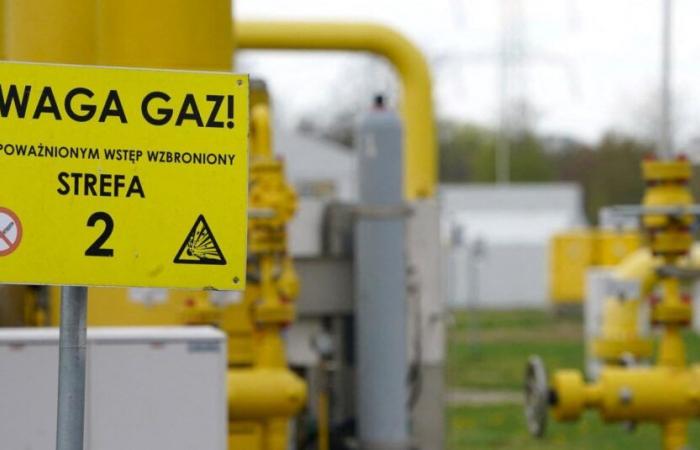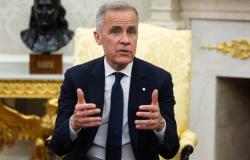The European Commission published on Tuesday a roadmap aiming at the abolition, by the end of 2027, of all imports in the EU of Russian gas, which continue to fuel war in Ukraine. “A very clear message in Moscow”, according to the energy commissioner, Dan Jørgensen.
In a roadmap presented in Strasbourg, on the sidelines of the plenary session of the European Parliament, the European Commission plans to put an end to the latest imports of Russian gas and oil, as well as to gradually withdraw the Russian nuclear energy from the European market. The objective is to preserve the European Union energy supply security while limiting the impact on prices.
The plan REPowerEU has already allowed Europe to diversify its sources of supply. “It is now time for Europe to completely break its energy links with this unreliable supplier,” pleads the president of the commission, Ursula von der Leyen. “The energy that arrives on our continent should not be used to finance a war of aggression against Ukraine. »»
The Commission will present legislative proposals next month. All imports by gas pipeline or by LNG (liquefied natural gas) would be prohibited from the end of this year, whether new current contracts or contracts. This measure should make it possible to reduce the remaining imports of Russian gas by one third.
For companies linked by long -term contracts, their breakdown by the end of 2027 will be considered as a case of force majeure, without being able to be responsible for it, said Commissioner Dan Jørgensen.
The Commission will associate the Member States concerned with the development of this plan. Each country will have to present a national roadmap by the end of the year. The European executive will ensure that the proposals are based on a rigorous evaluation of the legal and economic consequences, in order to provide companies with the necessary predictability.
In Belgium, Zeebrugge remains the first importer of LNG in Europe, according to the Institute for Energy Economics and Financial Analysis (IEEFA). In 2024, almost seven billion cubic meters of Russian gas passed there, a drop of 11 %. Since March 26, the EU has prohibited the transhipment of Russian gas to third countries.
-The commission’s proposals must be adopted by the European Parliament and the Council (Member States), with a qualified majority. A country like Hungary, of which Prime Minister Viktor Orbán remains close to the Kremlin, could refuse to submit a national plan. He would then be exposed to the offense procedures provided for by European treaties.
The share of Russian gas in EU imports increased from 45 % in 2022 to 13 %, according to Dan Jørgensen. However, Europeans still paid 23 billion euros to Russia last year for their energy imports. Since the invasion of Ukraine in February 2022, the Member States have bought more energy from Russia than the EU has provided Ukraine – the equivalent of 2,400 fighter planes, according to the Danish commissioner.
Regarding nuclear fuel, the Commission plans to gradually eliminate imports of uranium, enriched uranium and other Russian nuclear materials. As for oil still transported via the “ghost fleet” – a Russian strategy to bypass sanctions and price caps – the EU envisages maritime surveillance and deterrent missions.
Half a word, Dan Jørgensen refuted any link between this roadmap and possible American pressure to buy more gas. Energy independence from Russia was already in the mission letter that Ursula von der Leyen had entrusted to him at the start of his mandate, he recalled.
Combined with the objectives of the energy transition, these measures aim to replace up to 100 billion cubic meters of natural gas by 2030. At the same time, European LNG capacities should grow 200 billion m³ by 2028 – or five times more than current volumes of imported Russian gas.
The gradual approach recommended by the Commission aims to minimize the impact on prices and guarantee the conclusion of alternative and reliable supply contracts.








